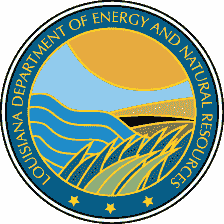Top Stories
Low Carbon Logistics Withdraws Pipeline Applications
Contact: Patrick Courreges, 225-342-0510
BATON ROUGE — The Louisiana Department of Energy and Natural Resources (DENR) is announcing that Low Carbon Logistics CCS Transport LLC has withdrawn applications that were due to be part of Sept. 9 pipeline hearings.
DENR is making this announcement in recognition of the high level of public interest demonstrated by residents of southwest Louisiana in Low Carbon Logistics applications for “approval to construct” and what is known as a “certificate of public convenience and necessity.”
Certificates of public convenience and necessity are documents used by pipeline operators or other companies carrying out activities covered by eminent domain law as part of filings with state courts seeking to expropriate land or rights-of-way. Approvals to construct primarily verify there is an end user/recipient for the type of pipeline involved.
Low Carbon Logistics CCS Transport LLC had two applications for certificates and one for approval to construct, all associated with a CO2 pipeline proposed to be located in Calcasieu Parish west of Lake Charles, connecting a methanol plant to an existing CO2 pipeline operated by ExxonMobil subsidiary Denbury. One of the certificates would have been associated with the proposed function of the line to serve carbon capture and sequestration (CCS) operations, and the other with its proposed function to supply CO2 for Enhanced Oil Recovery (EOR) operations. The end users for both of those prospective functions are in Texas.
DENR staff also noted that some members of the public have misapplied existing laws on public notice that involve other processes and entities, such as government boards and commissions, in expressing their concerns with the notice procedure applied by DENR for this type of hearing.
DENR required that proper notice be given in accordance with state law to the general public and to property owners whose land could be crossed by the proposed pipeline and pipeline operators that could be connected to the proposed line, and part of the scheduled public hearing and review on the matter would include verification that notice had been provided appropriately.
The approval to construct and certificate of public convenience and necessity processes associated with pipelines are not permits and these hearings, as laid out in accordance with law specific to that process, are not the same type as the hearings associated with permitting processes, such as injection well permits or Coastal Use Permits, carried out by DENR.
Instead, these hearings are more akin to judicial evidentiary hearings, in which the potential participants/testimony in direct hearings are designated in law and regulation as “owners of the land to be traversed by the proposed pipeline, the owners and operators of pipelines to which the applicant wishes to connect, and the owners and operators of pipelines to which applicant is presently connected.”
Other members of the public may attend and may speak in such hearings, but only in the general public comment section of the hearings, not as part of the evidentiary portion, which is reserved for the interests listed in law and regulation.
This process is not new or unique to this project or to proposed CO2 pipelines, but has been in established in law and regulation for decades. The original intent of the process was not to create an overarching permitting program, but simply to verify that the use of a proposed pipeline met the definition in state law for being a “public convenience and necessity,” allowing an operator to seek court permission to expropriate, and to ensure that there was also a demonstrated market need in the form of an end user/recipient.
DENR would also like to correct an apparent misconception that the agency will not take public comments sent by e-mail. This is categorically untrue, and any comments on this hearing or any other hearings held by DENR can always be sent to dnrinfo@la.gov.
To be clear, while DENR does not restrict the nature of comments made, either written or spoken, during the comment period and the general comment portion of this type of public hearing, these certificates and approvals to construct only deal with whether the proposed project meets the definitions and requirements involved under state law as written. This process does not involve questions of design, engineering, construction, operational constraints or emergency response – only whether the proposed pipeline meets the requirements set in law for purpose and established generator and receiver.
###
News Archives »